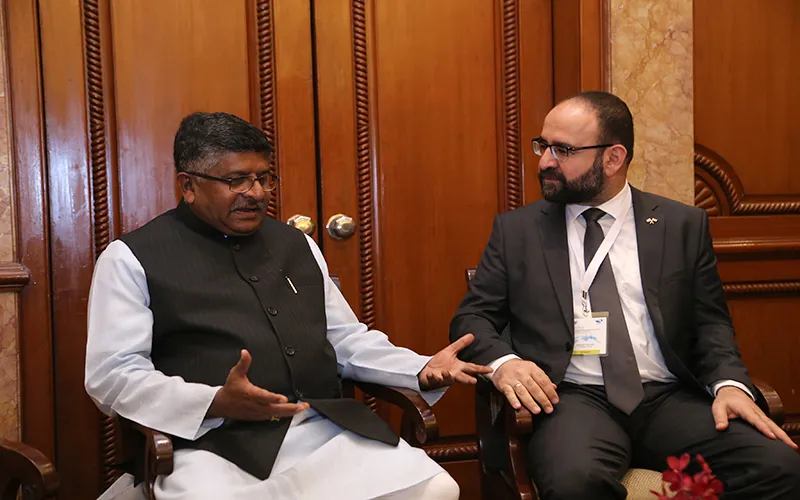It is at the new frontier of the “next billion” that fundamental questions of internet governance will be played out anew. Three editions later, CyFy: The India Conference on Cyber Security and Internet Governance has emerged as a focal point for a global dialogue around these questions. At CyFy 2015, over 100 experts from 33 countries and 6 continents weighed in on the future of cyberspace.
Since the internet seamlessly connects populations from advanced and emerging economies, we share a common future. However, the paths toward that future are uncommon. Policies around digital access and empowerment will radically re-draw the cyber landscape. CyFy 2015 brought practitioners and thought leaders together to navigate this complex terrain.
With individuals from the academia, industry, civil society and governments converging in New Delhi for the three-day conference, CyFy strove to create an inclusive environment for emerging voices. The conference also launched the CyFy Research Initiative, a multi-year venture leaning on scholarship in Asia and Africa on cybersecurity and internet governance. The research initiative's areas of focus were reflected in the 16 panels featured this year at CyFy.
We were joined this year by a distinguished delegation from Sweden, an event partner of the conference. Minister for Housing, Urban Development and Information Technology Mehmet Kaplan led the delegation, and was the guest of honour at our inaugural session. CyFy 2015 saw the participation of key Indian representatives and policy makers. The conference saw opening remarks from Ravi Shankar Prasad, Union Minister for Communications and Information Technology. Mr. Prasad addressed the gathering in the presence of distinguished guest and his counterpart from Sweden, Minister Mehmet Kaplan. In his remarks, Mr. Prasad spoke of harnessing the potential of digital technologies, and the need to leverage technology for grassroots development. Minister of State for Commerce and Industry Nirmala Sitharaman addressed CyFy 2015 on the second day of the conference, affirming the important role that start-ups and disruptive technologies play in the digital economy. CyFy was also privileged to host officials directly responsible for cyber policy planning and implementation in India. Deputy National Security Advisor Arvind Gupta, National Cyber Security Coordinator Gulshan Rai, Additional Secretary in the Department of Electronics and IT Ajay Kumar, and Joint Secretary for Global Cyber Issues Santosh Jha delivered keynote addresses and participated in panel discussions.
The India-US cyber relationship, crucial to debate on norms and governance in this field, was advanced substantially this year. The India-US Track 1.5 dialogue on cyber issues – bringing government, industry and civil society from both sides to the table – was announced this year at the Strategic and Commercial Dialogue between both countries and subsequently at CyFy. US government speakers at CyFy 2015 included Christopher Painter, U.S. Department of State Coordinator for Cyber Issues and Sean Kanuck, National Intelligence Officer for Cyber Issues. The conference also saw participation from prominent voices on cyber issues from leading US think tanks.
Two panels in particular merit mention: the Internet and the State session, since it saw for the first time cyber coordinators from the United States, India, France and the European Union come together for a policy discussion, and the Future of the Internet panel, which set the tone for the next edition of CyFy, exploring possible themes and issues. CyFy 2015 initiated a dialogue to connect the next billion in Asia and Africa, and its next edition hopes to build on the scholarship and conversations on cyber norms around access, inclusion, security and development.
Find out more about CyFy – The India Conference on Cyber Security and Internet Governance.
This report was prepared by Anahita Mathai, Junior Fellow, Observer Research Foundation, New Delhi.
The views expressed above belong to the author(s). ORF research and analyses now available on Telegram! Click here to access our curated content — blogs, longforms and interviews.




 PREV
PREV

